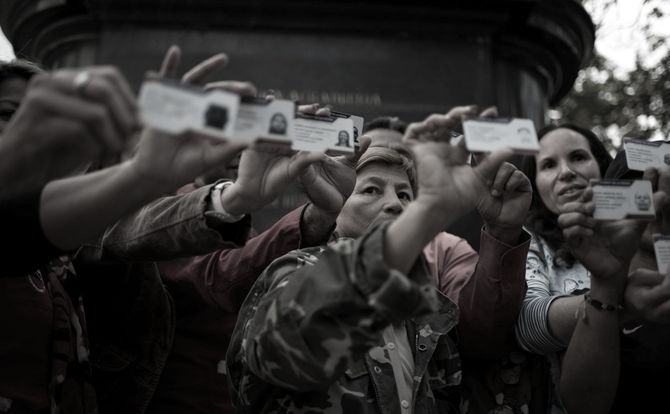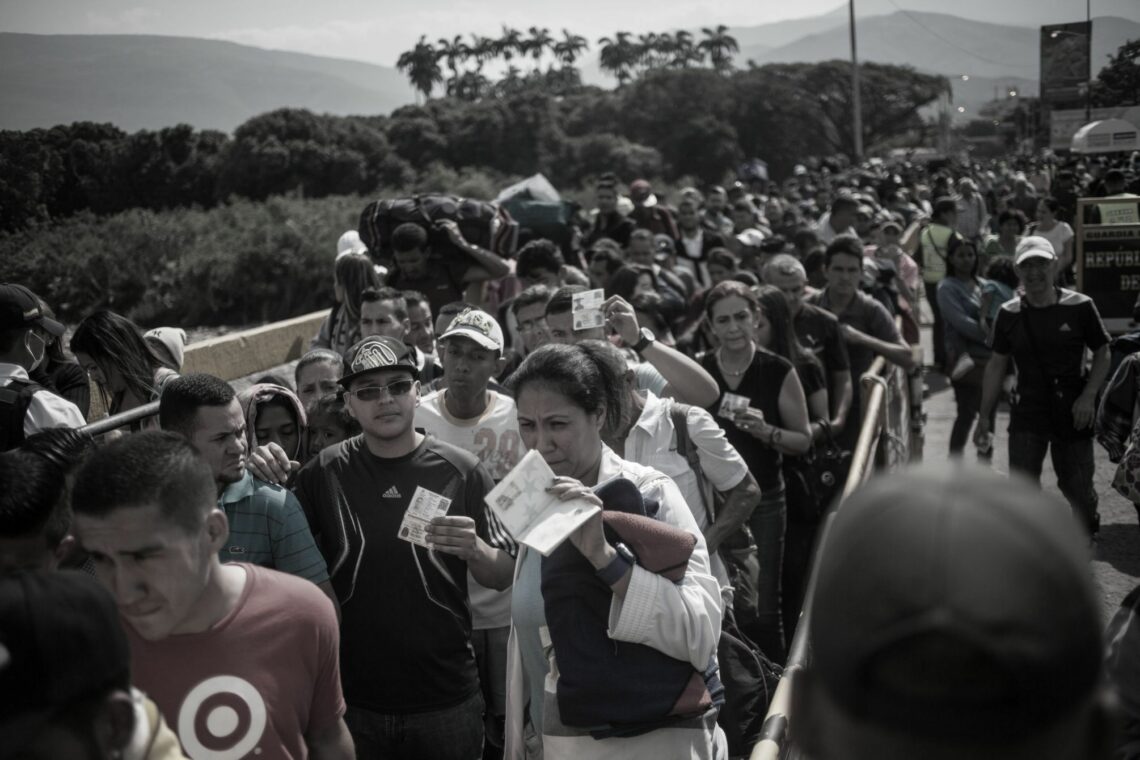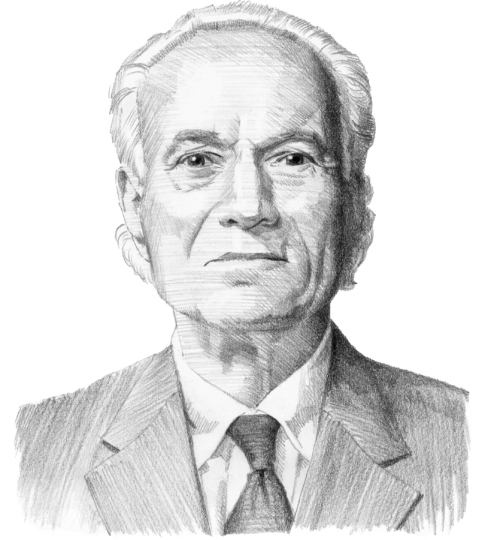Pieces still not in place for Maduro’s fall
Venezuela’s crisis might end only when there is a clear exit for President Nicolas Maduro and his cohorts. So far, neither of those have materialized, meaning Venezuela’s crisis will likely not end anytime soon. When it does, it will be with the help of another country in the region, potentially Cuba or Mexico.

In a nutshell
- The conditions for Venezuela’s crisis to end are not yet in place
- A lack of oil revenue will ultimately doom President Nicolas Maduro
- Cuba and Mexico could play a role in ending the crisis by offering a safe haven
Those who follow events in Venezuela have been wondering for months how long the government of President Nicolas Maduro could last and how much worse the economic and social situation could get. Most experts predicted that the Maduro regime would fall in a matter of months.
In my last report on Venezuela, I suggested that the end would come sooner rather than later only if two conditions were met. First, the exit costs for Mr. Maduro, his inner circle and the highest-ranking officers in the military – who are considered neck-deep in the international drug trade – would need to be settled in a peaceful manner through outside mediation. Second, the political opposition would have to create a unified front to provide a semblance of the government that would replace the Maduro regime.
Today, Venezuelans are dramatically worse off than they were just three months ago. Petroleum exports, which provide the bulk of government revenue, continue to decline. International pressure on the regime has been ratcheted up. The United States and the European Union have imposed sanctions on more than a dozen Venezuelan officials. The United Nations and Oxfam have made public declarations regarding the country’s desperate social conditions and the Organization of American States has formally condemned the regime.
However, the opposition is not much closer to joining forces today than it was three months ago (although opposition leaders recently met for the first time in months), and those nasty exit costs have not been resolved.
Downward spiral
The situation inside Venezuela has gone beyond desperate to dystopian. More than 2 million Venezuelans have fled the country in the past 18 months, approaching 10 percent of the country’s total population of 31 million. Hyperinflation became a reality months ago. The International Monetary Fund predicted that inflation would reach 1 million percent by the end of the year, putting Venezuela in a tiny group including Germany in 1923 and Zimbabwe at the beginning of the last decade. Money is worthless, contracts are abrogated; capacity utilization in industry is down to less than 25 percent. The IMF forecasts that the economy will contract by 18 percent, the third year it has shrunk by double digits. Venezuelans, with a few lucky exceptions, have been pauperized.
More than 2 million Venezuelans have fled the country in the past 18 months.
Medicine and food are imported and their distribution is handled by special networks controlled by the state, generally with military officers in charge. Hospitals are closed or offer limited service, public transportation is sporadic and unpredictable. Food in the markets is available only after waiting in line for hours each day. Schools are closed because the teachers are not being paid and there are no supplies for the students.
At the same time, oil exports, which provide the state with revenue to pay for the imports, are declining because the national petroleum company, PDVSA, does not have the money to maintain the wells or pay for the rigs to produce the oil. It may also lose its tanker fleet because it cannot afford to pay more than $2 billion owed to ConocoPhillips. The U.S. company has now managed to get a court to authorize the seizure of PDVSA assets as compensation. There are several other such payment defaults with mining and petroleum companies that will make it difficult for PDVSA to reverse the downward spiral of production. Just last month, Venezuela’s oil output fell below 1 million barrels per day, a level not seen for more than 30 years.
While the decline in oil revenue will ultimately doom the Maduro government, it is too slow to rescue the Venezuelan people from starvation and social cataclysm. So why doesn’t the government fall? The simple answer is that Mr. Maduro has succeeded in capturing the critical institutions of the state and has won two rigged elections – one in May of this year to reelect him to another term as president and the other to elect local and regional authorities.
When he last lost an election, in December 2015 for control of the National Assembly, President Maduro simply created another legislative body, the Constituent Assembly, and left the opposition-controlled National Assembly impotent. He won the last two elections because the opposition refused to participate and because the government manipulated the electoral process by jailing opposition politicians, barring unfriendly parties and using the government’s control over the supply of food to make sure that people went to the polls to vote for him.

Hi-tech control over the distribution of food – through Local Committees for Supply and Production, known by their Spanish acronym, CLAP – also helps to explain why there has been no revolt in the face of such deprivation. A special card, dubbed Carnet de la Patria, with an electronic chip, is given to loyal followers of the regime and to the poor. With the card, they can get food and other supplies at government distribution centers. In the May election, people were told to take their card to the polling place and, after voting, visit one of many government-run kiosks to have their chip recharged. The government is using its control over food supplies as an instrument of suppression.
Rising authoritarianism
The Venezuelan case is of interest to students of geopolitics because it fits into a growing discussion of how so-called hybrid regimes use the trappings of democratic systems to disguise their authoritarian character and how elected officials can undermine democracies. The U.S. is the country prompting the most speculation, while the EU is also under intense scrutiny. The minimum definition of democracy is that electoral results must be uncertain. That is no longer the case in Venezuela.
The International Criminal Court’s chief prosecutor, Fatou Bensouda, has indicated that her office is opening an investigation into the Venezuelan situation. Will Mr. Maduro end up like former Yugoslav President Slobodan Milosevic? Again, that requires some form of community consensus. Just last week a criminal complaint was filed in a federal court in Miami alleging Venezuelan officials had laundered some $1.2 billion. Although this may make it appear as if the U.S. government were getting ready to intervene, nothing can be done so long as the opposition cannot get together.
How can outside pressure on President Maduro succeed without a coherent domestic alternative?
If we look at the rise of nationalist populism and threats to democracy in Europe over the past few years, we can see that the success of authoritarian movements often depends on the weakness of the regional community. Who or what group will help push President Maduro from power and how can outside pressure on him succeed without a coherent domestic alternative?
The regional organizations in the Western Hemisphere have been unable to devise a strategy to accomplish a peaceful transition from the Maduro regime to something more democratic.
Role for Cuba and Mexico
The road to a peaceful solution goes through Havana and might include Mexico City. Can Cuba offer a safe haven for Mr. Maduro – perhaps as a bargaining chip for a broader settlement with the U.S.? President Maduro continues to supply Cuba with cheap oil, even going so far as to buy crude on the open market to supply Cuban refineries. The Cuban military and intelligence forces help President Maduro control his own population. To play the role of peacemaker, Cuba must agree to remove all of its military and intelligence operatives.
The new president of Mexico, Andres Manuel Lopez Obrador (AMLO), is a wild card. He wants to revert to the traditional Mexican foreign policy of nonintervention (the Estrada Doctrine), according to which Mexico would not join the rest of the Lima Group (established by 17 countries in August 2017 to find a peaceful resolution in Venezuela) in pressuring President Maduro to leave quietly. However, it is quite possible that AMLO might ask his new foreign minister, Marcelo Ebrard, an extraordinarily talented policymaker, to offer Mexico’s services as a mediator and put forward the country as a safe haven for those most threatened by legal proceedings under a new government.








